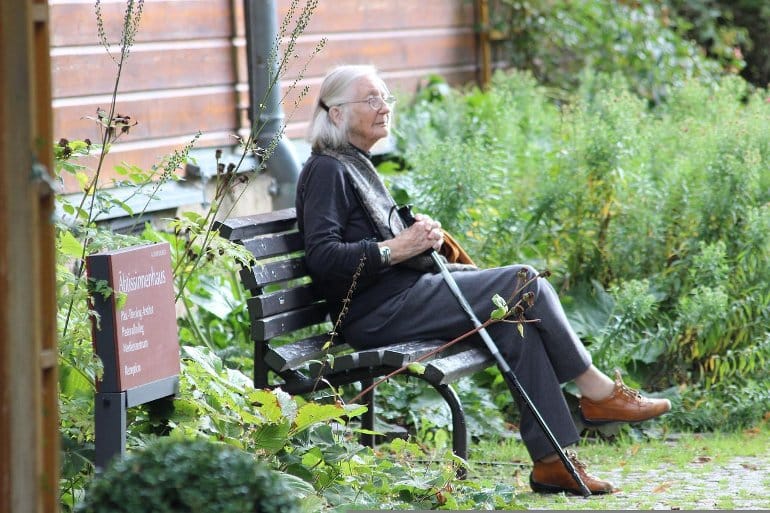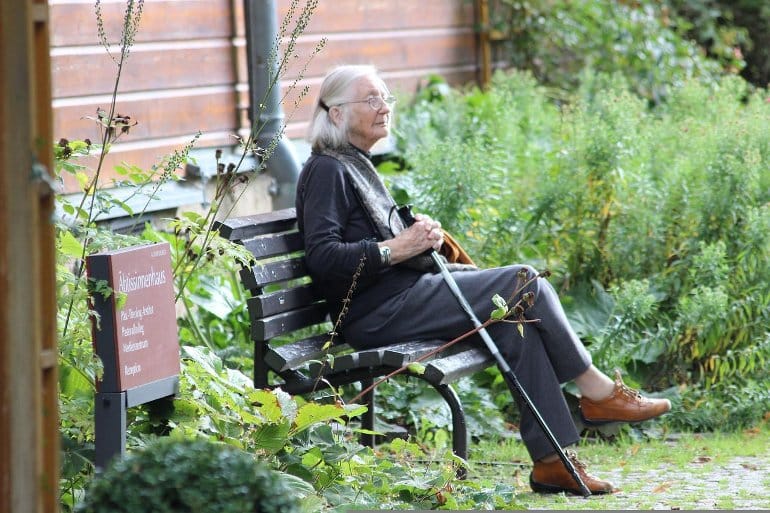Summary: Transplanting fecal microbiota from young mice to older mice reversed hallmark signs of aging in the gut, brains, and eyes. Transplanting the fecal microbiota from old to young mice had the reverse effect, inducing inflammation in the brain and depleting a key protein associated with healthy vision.
Source: University of East Anglia
In the search for eternal youth, poo transplants may seem like an unlikely way to reverse the aging process.
However, scientists at the Quadram Institute and the University of East Anglia have provided evidence, from research in mice, that transplanting fecal microbiota from young into old mice can reverse hallmarks of aging in the gut, eyes, and brain.
In the reverse experiment, microbes from aged mice induced inflammation in the brain of young recipients and depleted a key protein required for normal vision.
These findings show that gut microbes play a role in the regulating some of the detrimental effects of aging and open up the possibility of gut microbe-based therapies to combat decline in later life.
Prof Simon Carding, from UEA’s Norwich Medical School and head of the Gut Microbes and Health Research Program at the Quadram Institute, said: “This ground-breaking study provides tantalizing evidence for the direct involvement of gut microbes in aging and the functional decline of brain function and vision and offers a potential solution in the form of gut microbe replacement therapy.”
It has been known for some time that the population of microbes that we carry around in our gut, collectively called the gut microbiota, is linked to health. Most diseases are associated with changes in the types and behavior of bacteria, viruses, fungi and other microbes in an individual’s gut.
Some of these changes in microbiota composition happen as we age, adversely affecting metabolism and immunity, and this has been associated with age-related disorders including inflammatory bowel diseases, along with cardiovascular, autoimmune, metabolic and neurodegenerative disorders.
To better understand the effects of these changes in the microbiota in old age, scientists from the Quadram Institute transferred the gut microbes from aged mice into healthy young mice, and vice versa. They then looked at how this affected inflammatory hallmarks of aging in the gut, brain and eye, which suffer from declining function in later life.
The study, published in the journal Microbiome, found that the microbiota from old donors led to loss of integrity of the lining of the gut, allowing bacterial products to cross into the circulation, which results in triggering the immune system and inflammation in the brain and eyes.
Age-related chronic inflammation, known as inflammaging, has been associated with the activation of specific immune cells found in brain. These cells were also over-activated in the young mice who received aged microbiome transplants.
In the eye, the team also found specific proteins associated with retinal degeneration were elevated in the young mice receiving microbiota from old donors.
In old mice, these detrimental changes in the gut, eye and brain could be reversed by transplanting the gut microbiota from young mice.
In ongoing studies, the team are now working to understand how long these positive effects can last, and to identify the beneficial components of the young donor microbiota and how they impact on organs distant from the gut.
The microbiota of young mice, and the old mice who received young microbiota transplants were enriched in beneficial bacteria that have previously been associated with good health in both mice and humans.


The researchers have also analyzed the products which these bacteria produce by breaking down elements of our diet. This has uncovered significant shifts in particular lipids (fats) and vitamin metabolism, which may be linked to the changes seen in inflammatory cells in the eye and brain.
Similar pathways exist in humans, and the human gut microbiota also changes significantly in later life, but the researchers caution about extrapolating their results directly to humans until similar studies in elderly humans can be performed.
A new facility for Microbiota Replacement Therapy (MRT), also known as Fecal Microbiota Transplantation (FMT) is being built in the Quadram Institute that will facilitate such trials, as well as other trials for microbiota-related conditions.
Lead author of the study, Dr. Aimee Parker from the Quadram Institute said: “We were excited to find that by changing the gut microbiota of elderly individuals, we could rescue indicators of age-associated decline commonly seen in degenerative conditions of the eye and brain.
“Our results provide more evidence of the important links between microbes in the gut and healthy aging of tissues and organs around the body. We hope that our findings will contribute ultimately to understanding how we can manipulate our diet and our gut bacteria to maximize good health in later life.”
About this microbiome and aging research news
Author: Press Office
Source: University of East Anglia
Contact: Press Office – University of East Anglia
Image: The image is in the public domain
Original Research: Closed access.
“Fecal microbiota transfer between young and aged mice reverses hallmarks of the aging gut, eye, and brain” by Aimée Parker et al. Microbiome
Abstract
Fecal microbiota transfer between young and aged mice reverses hallmarks of the aging gut, eye, and brain
Background
Altered intestinal microbiota composition in later life is associated with inflammaging, declining tissue function, and increased susceptibility to age-associated chronic diseases, including neurodegenerative dementias. Here, we tested the hypothesis that manipulating the intestinal microbiota influences the development of major comorbidities associated with aging and, in particular, inflammation affecting the brain and retina.
Methods
Using fecal microbiota transplantation, we exchanged the intestinal microbiota of young (3 months), old (18 months), and aged (24 months) mice. Whole metagenomic shotgun sequencing and metabolomics were used to develop a custom analysis workflow, to analyze the changes in gut microbiota composition and metabolic potential. Effects of age and microbiota transfer on the gut barrier, retina, and brain were assessed using protein assays, immunohistology, and behavioral testing.
Results
We show that microbiota composition profiles and key species enriched in young or aged mice are successfully transferred by FMT between young and aged mice and that FMT modulates resulting metabolic pathway profiles. The transfer of aged donor microbiota into young mice accelerates age-associated central nervous system (CNS) inflammation, retinal inflammation, and cytokine signaling and promotes loss of key functional protein in the eye, effects which are coincident with increased intestinal barrier permeability. Conversely, these detrimental effects can be reversed by the transfer of young donor microbiota.
Conclusions
These findings demonstrate that the aging gut microbiota drives detrimental changes in the gut–brain and gut–retina axes suggesting that microbial modulation may be of therapeutic benefit in preventing inflammation-related tissue decline in later life.














